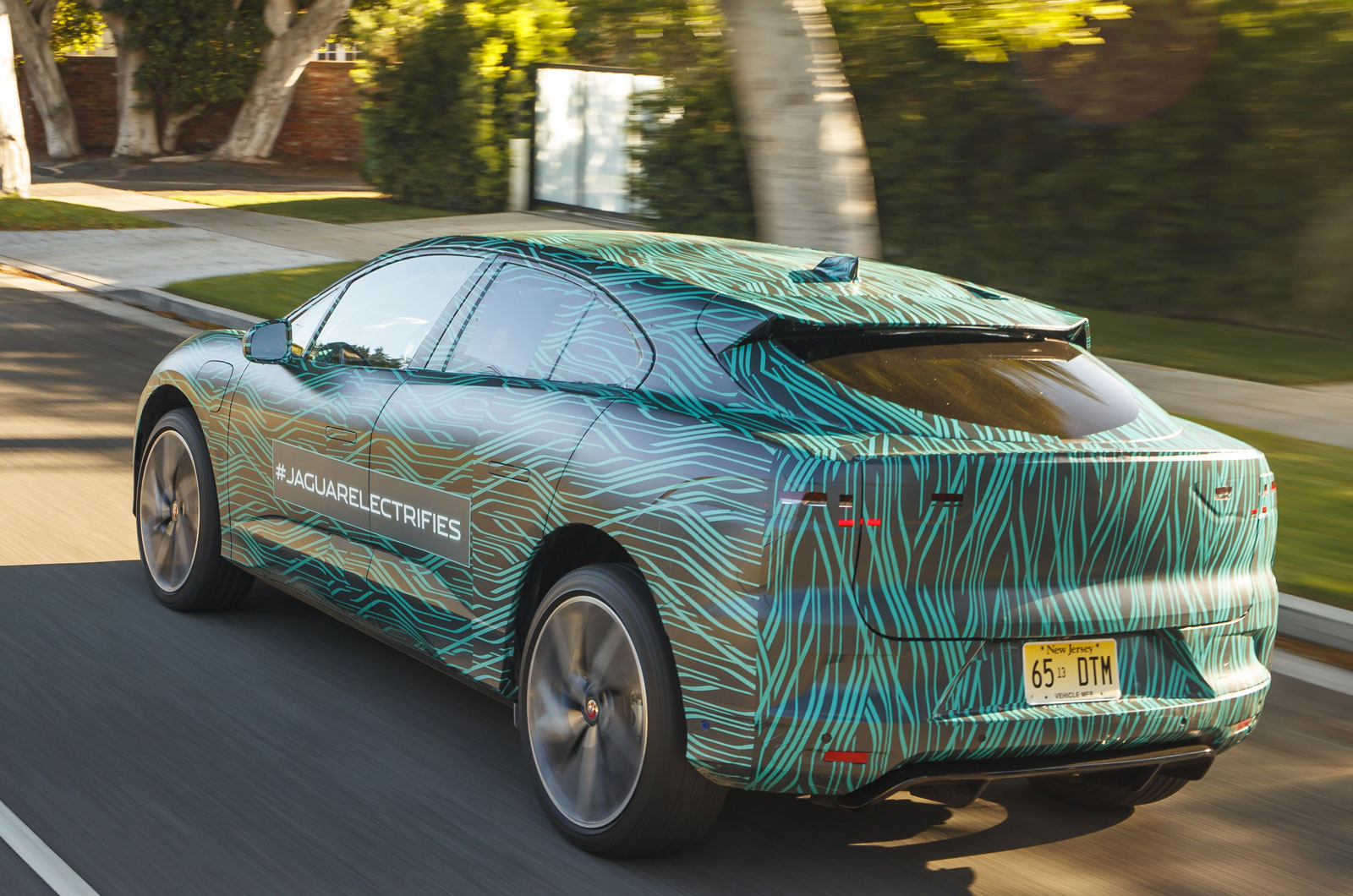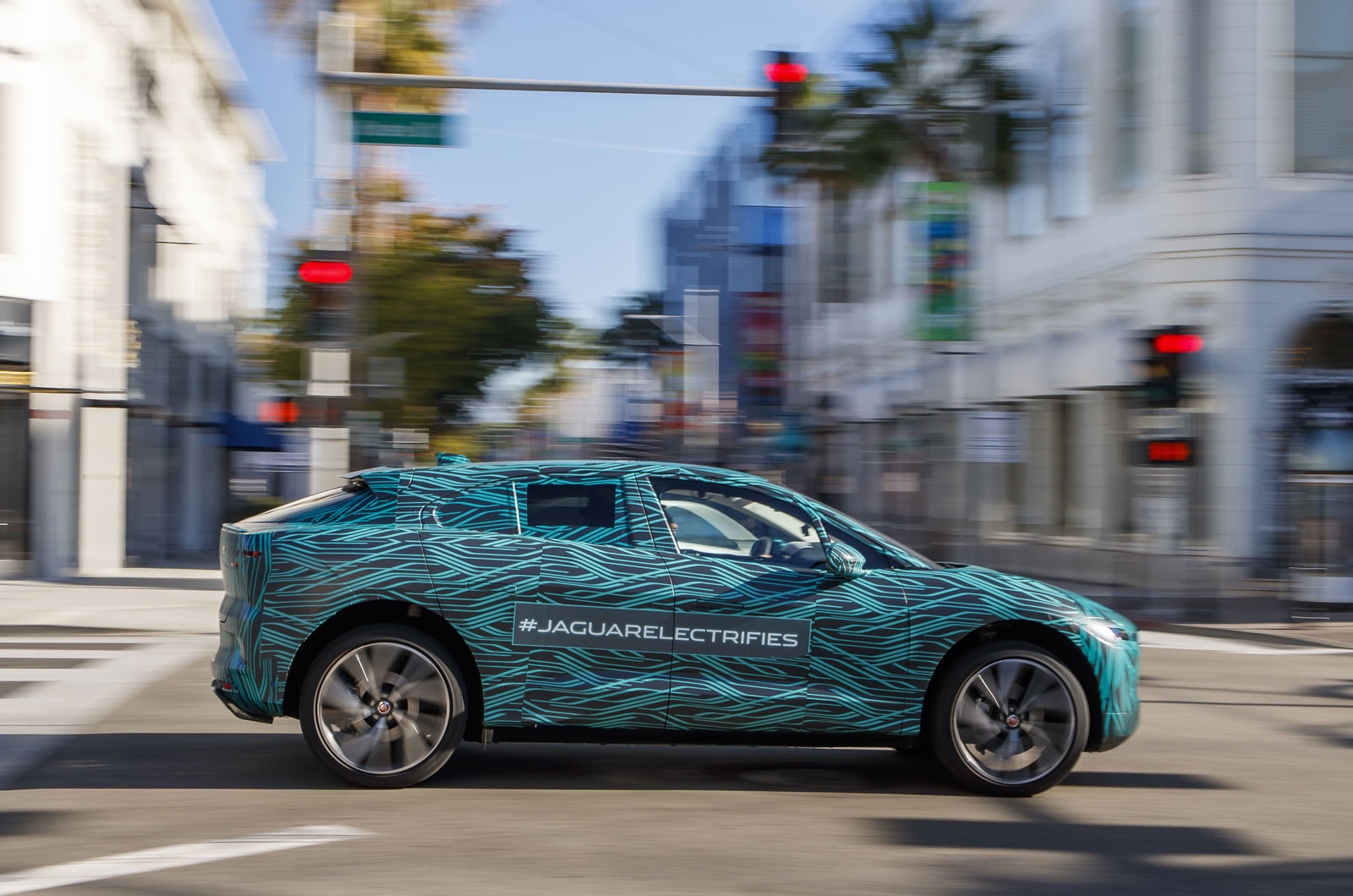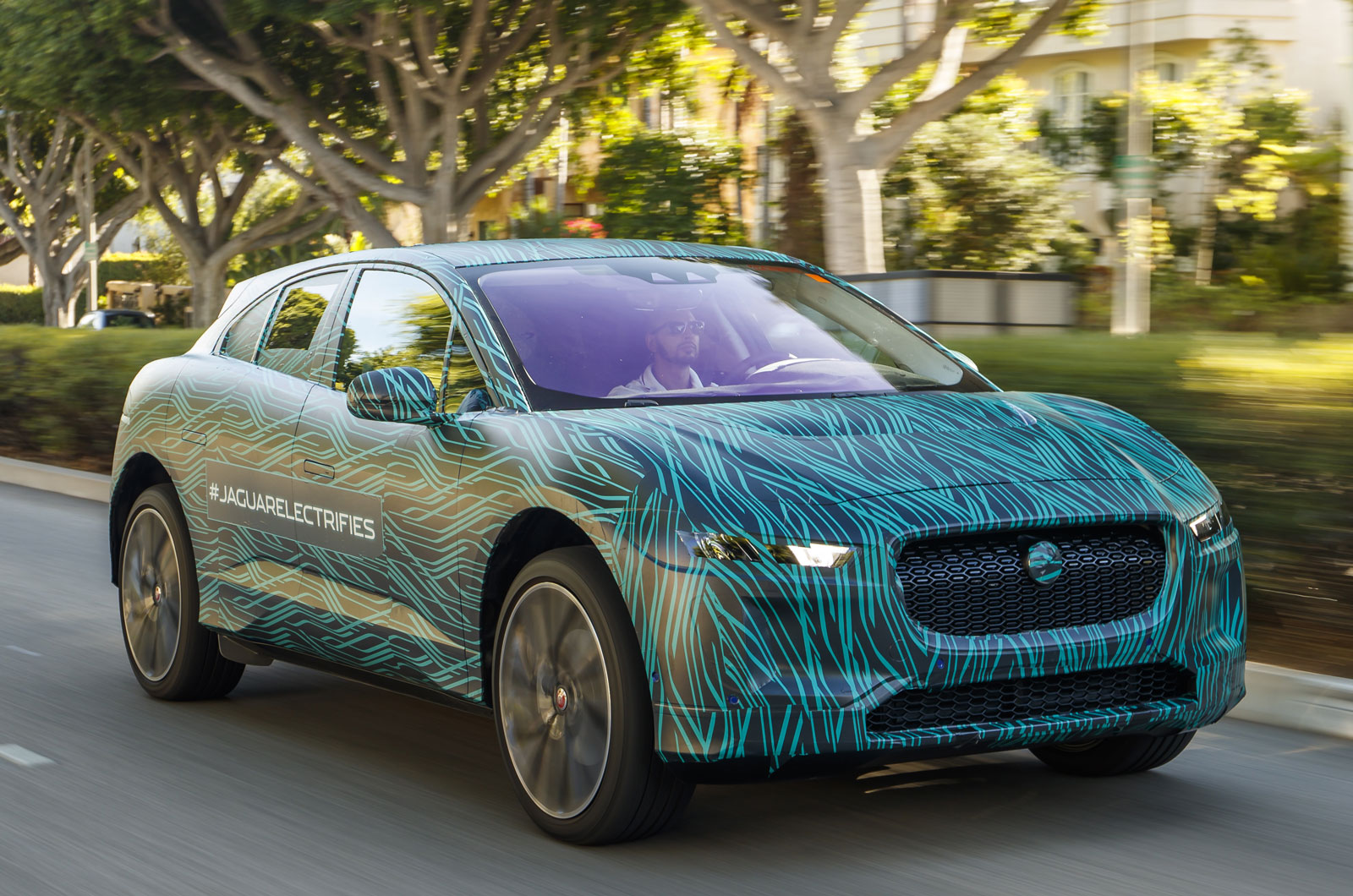The Jaguar I-Pace will go on sale in the UK in March next year – the same month that it receives its world debut at the Geneva motor show – and it will be with customers from the summer.
The model is Jaguar's first electric car and built on a bespoke aluminium-intensive architecture. It will be the second Jaguar model to be built overseas, production due to take place by contract manufacturing firm Magna in Graz, Austria, where the E-Pace is also being built.
The I-Pace is now in the final stages of testing at the 'tooling try-out' stage, where the prototypes, like the one pictured here, are made using production tooling for the first time and are 99% representative of the finished car's hardware.

As the pictures show, the I-Pace remains true to the design of the concept car of the same name a year ago, as a near 4.7m-long five-seat SUV. Jaguar is still not disclosing statistics about the car's performance or range but, as with the design, it is promising the engineering will stay true to the concept car.
The concept's range was in excess of 310 miles and it dispatched 0-60mph in a claimed 4.0sec. It had two electric motors for a combined 395bhp and 516lb ft, and a 90kWh lithium ion battery pack mounted on the floor. Jaguar is targeting an 80% charge of the batteries in the time it would take to have a coffee break.
Jaguar I-Pace eTrophy racing series to support Formula E next year
The major electrical components, such as the lithium ion battery pack and twin electric motors, are all Jaguar's own in-house design and the electric motors are said to be the most power dense of their size on the market.
The I-Pace's lead powertrain engineer, Simon Patel, said the final tweaks to the calibration of the electric drivetrain are being made to ready it for production, but the major development was now complete.

The car will have some off-road ability, but its primary role will be to offer a dynamic drive that the firm prides all its models on having. The chassis is being set up to offer a firm, sporty ride, but a supple one. Steel springs will be standard, with air suspension and adaptive dampers optional. The suspension and steering systems are borrowed from the F-Pace but have been adapted for the I-Pace.
Two levels of regenerative braking will be offered: a standard mode to replicate how a conventionally powered car would react to the driver coming off the throttle; and a more aggressive mode that allows the car to be effectively driven with one pedal.
The production car will have permanent four-wheel drive and use torque vectoring by braking to enhance the handling. The centre of gravity is 100mm lower than an F-Pace's and that is being tipped to aid the dynamic drive.
In the development process, some 200 prototypes have been driven for more than 1.5 million miles. The project has been worked on by more than 500 engineers over four years.
Riding in the new Jaguar I-Pace

We're riding in the sixth car to be built in this latest run of near production-ready prototypes, with lead powertrain engineer Simon Patel driving. He's beaming at the performance: this car could out-accelerate many a supercar it shares the roads of Beverly Hills with on our seven-mile ride. It is rapid, the torque instantaneous.
The cabin is draped in black cloth to shroud the design and details, but it can't hide the airy feel of the interior and a driving position that's low slung for an SUV. There's decent room in the back, too, with stadium-style seating.
The ride is firm but not uncomfortable and the car has an excellent turning circle. It's also very quiet. Patel says it's about 6-8dB lower than in an equivalent piston-engined car, and the noise from the powertrain under hard acceleration gives an exciting whoosh rather than a whiny drone.
The I-Pace forgets almost every Jaguar convention in its design, layout and technology, yet also displays many welcome familiar traits. Here's to the future.
More content: